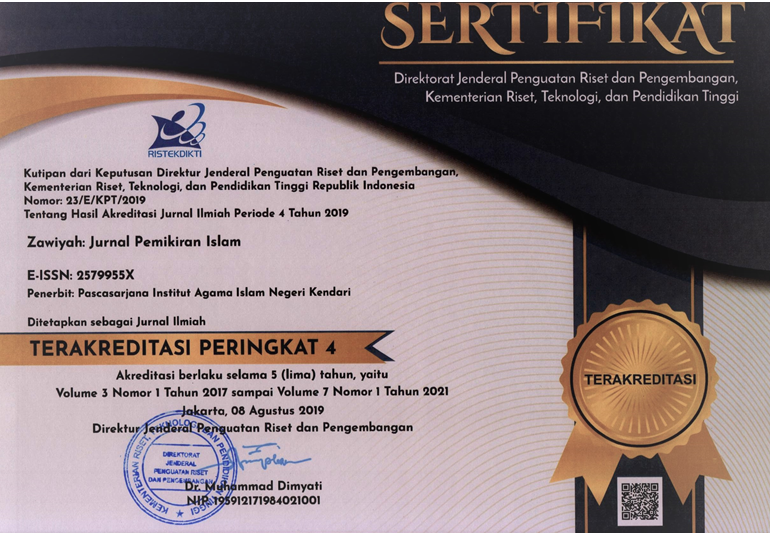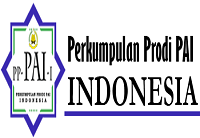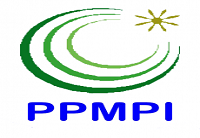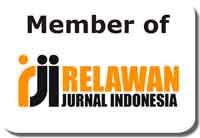INTEGRATION OF ISLAMIC EDUCATION VALUES TOWARDS THE “YATIMAN” TRADITION IN THE MONTH OF SURO IN PEKALONGAN
Abstract
Keywords
Full Text:
PDFReferences
Abidin, Z. (2019). Makna Tradisi Suran (Kegiatan Malam Satu Sura) dalam Menjalin Ukhuwah Islamiyah di Desa Sriwijaya Mataram Kecamatan Bandar Mataram Kabupaten Lampung Tengah. Skripsi Fakultas Dakwah Dan Ilmu Komunikasi Universitas Islam Negeri (UIN) Raden Intan Lampung, (3), 1–129.
Adinugraha, H. H. (2018). Kearifan Lokal di Pedesaan: Kajian Praktik Budaya Religi Di Desa Nyatnyono. International Journal Ihya’ ’Ulum al-Din, 20(1). https://doi.org/10.21580/ihya.20.1.2997
Adinugraha, H. H., Hasan, A., Pekalongan, I., & Semarang, U. I. N. W. (2020). Understanding of Islamic Studies Through Textual and Contextual Approaches, 17(1), 26–48.
Ahmad Jamalong, Sukino, S. (2019). Pendidikan Pancasila dan Kewarganegaraan di Perguruan Tinggi. American Journal of Epidemiology (Vol. 183).
Ahmadi, A. (2020). Ilmu Pendidikan Islam Sebagai Perspektif Kehidupan. AL-FIKR: Jurnal Pendidikan Islam, 5(2). https://doi.org/10.32489/alfikr.v5i2.27
Anam, S., Degeng, I. N. S., Murtadho, N., & Kuswandi, D. (2019). The moral education and internalization of humanitarian values in pesantren. Journal for the Education of Gifted Young Scientists, 7(4). https://doi.org/10.17478/jegys.629726
Anas, A., & Adinugraha, H. H. (2017). Dakwah Nabi Muhammad terhadap Masyarakat Madinah Perspektif Komunikasi Antarbudaya. Ilmu Dakwah: Academic Journal for Homiletic Studies, 11(1), 53–72. https://doi.org/10.15575/idajhs.v11i1.1356
Anggito, A. dan J. S. (2018). Metodologi Penelitian Kualitatif. Sukabumi: CV. Jejak.
Arifianto, D., Nurman, N., & Dewi, S. F. (2018). Nilai-Nilai Moral dan Sosial dalam Penyelenggaraan Kenduri Sudah Tuai di Desa Kumun Mudik Kota Sungai Penuh. Journal of Civic Education, 1(3). https://doi.org/10.24036/jce.v1i3.213
Aryanti, R., & Az Zafi, A. (2020). Tradisi Satu Suro Di Tanah Jawa Dalam Perspektif Hukum Islam. AL IMAN: Jurnal Keislaman dan Kemasyarakatan, 4(2).
Ayuningsih, W., Syafaruddin, S., & MS, A. (2020). Implementation of Islamic Education Curriculum Development in Al-Ulum Islamic School Medan. Budapest International Research and Critics in Linguistics and Education (BirLE) Journal, 3(2). https://doi.org/10.33258/birle.v3i2.1031
Beti, L. A. (2019). Budaya Kenduri Sebagai Sedekah di Desa Parelor Kecamatan Kunjang Kabupaten Kediri. Artikel Jurnal, 8(5).
Darmadi, H. (2019). Dasar Konsep Pendidikan Moral. Bandung: Alfabet.
Eakman, A. M. (2015). The meaningful activity wants and needs assessment: A perspective on life balance. Journal of Occupational Science, 22(2). https://doi.org/10.1080/14427591.2013.769405
Filson, C. P. (2018). Quality of care and economic considerations of active surveillance of men with prostate cancer. Translational Andrology and Urology. https://doi.org/10.21037/tau.2017.08.08
Frensch, P. A., & Funke, J. (1995). Definitions, traditions, and a general framework for understanding complex problem solving. Complex problem solving The European perspective.
Halik, A. (2020). Ilmu pendidikan islam: perspektif ontologi, epistemologi, aksiologi. Istiqra’, 7(2).
Huda, M. (2015). Hasan Al-Banna Thought Actualisation In The Islamic Education Development. QIJIS: Qudus International Journal of Islamic Studies, 3(1).
Isdiana. (2017). Tradisi Upacara Satu Suro dalam Perspektif Islam (Study di Desa Keroy Kecamatan Sukabumi Bandar Lampung). UIN Raden Intan Lampung, 12(1).
Janah, U. R. (2016). Nilai-Nilai Filantropi Pada Tradisi Yatiman di Brotonegaran Ponorogo. kodifikasi, 10(01).
Kartono, K. (1983). Pengantar Metodologi Reserach Sosial. Bandung: Alimini.
Librianti, E. O. I., & Mukarom, Z. (2019). Budaya Tahlilan sebagai Media Dakwah. Prophetica : Scientific and Research Journal of Islamic Communication and Broadcasting, 5(1). https://doi.org/10.15575/prophetica.v5i1.1306
Lubis, S. A., Neliwati, & Ficki Padli Pardede. (2020). The Implementation of Akhlaq Education Values in Academic Services at STIT Al Hikmah Tebing Tebinggi. International Journal for Educational and Vocational Studies, 2(11).
Lubis, Z., & Anggraeni, D. (2019). Paradigma Pendidikan Agama Islam di Era Globalisasi Menuju Pendidik Profesional. Jurnal Online Studi Al-Qur’an, 15(1). https://doi.org/10.21009/jsq.015.1.07
Mahmuda, M. (2019). Anak Yatim Sebagai Objek Dakwah dalam Perspektif Al-Qur’an. Al-Hikmah: Jurnal Dakwah dan Ilmu Komunikasi, 1(2). https://doi.org/10.15548/al-hikmah.v1i2.111
Manan, A., & Aslamiyah, S. S. (2020). Implementasi Budaya Religius dalam Perkembangan Moral Peserta Didik. Akademika, 13(01). https://doi.org/10.30736/adk.v13i01.140
Martin, J. L., & Lembo, A. (2020). On the other side of values. American Journal of Sociology, 126(1). https://doi.org/10.1086/709778
Mohammed, A. S., & Giacomo, S. (2017). A survey on species diversity, abundance and community structure of woody plants in burial sites in Gobeya Rural Administrative of Tehuledere District, South Wollo, Ethiopia. Journal of Ecology and The Natural Environment, 9(4). https://doi.org/10.5897/jene2017.0634
Muchlis, M. A., Iman, N., & Ariyanto, A. (2018). Peran Pendidikan Kepramukaan dalam Membangun Jiwa Kepemimpinan Peserta Didik di MA Sulamul Huda Siwalan Mlarak Ponorogo. TARBAWI:Journal on Islamic Education, 2(01). https://doi.org/10.24269/tarbawi.v2i01.248
Muniri, A. (2020). Tradisi Slametan: Yasinan Manifestasi Nilai Sosial-Keagamaan di Trenggalekstasi Nilai Sosial-Keagamaan di Trenggalek. J-PIPS (Jurnal Pendidikan Ilmu Pengetahuan Sosial), 6(2). https://doi.org/10.18860/jpips.v6i2.9050
Muqoyyidin, A. W. (2016). Internalisasi dan Akulturasi Nilai-Nilai Keislaman dalam Tradisi dan Budaya Masyarakat Jawa. Humanika, 1(2).
Nur, rofiqoh wahyu. (2016). Peranan Agama ada Tradisi Adat Suronan terhadap Pembentukan Sikap Keagamaan Remaja di Suroloyo Dusun Keceme Desa Gerbosari Kecamatan Samigaluh Kabupaten Kulonprogo DIY 2015. جلة الإداري، معهد الإدارة العامة، سلطنة عمان، مسقط:, 147.
Pranata, L., & Ikhsan, R. (2018). Ritual Tari Tauh dalam Kenduri Sko ( Studi Interpretivisme Simbolik : Masyarakat Desa Lolo Hilir ). Sejarah dan Budaya, 12(1).
Purwati, Y., & Devi, A. D. (2020). Konsep penalaran bayani, irfani dan burhani pada pembelajaran aqidah ahlak dalam pendidikan islam. MADROSATUNA : Jurnal Pendidikan Guru Madrasah Ibtidaiyah, 3(2). https://doi.org/10.47971/mjpgmi.v3i2.275
Quadir, B., Chen, N. S., & Isaias, P. (2020). Analyzing the educational goals, problems and techniques used in educational big data research from 2010 to 2018. Interactive Learning Environments. https://doi.org/10.1080/10494820.2020.1712427
Safera, D., & Huda, M. C. (2020). Tradisi Suroan sebagai Tapak Tilas Walisongo (Studi di Desa Jatirejo Kecamatan Suruh Kabupaten Semarang). Al-Mada: Jurnal Agama, Sosial, dan Budaya, 3(1). https://doi.org/10.31538/almada.v3i1.500
Salman Irag Al-Najaf, F. A., Salehi, M., & Nimr Al-Maliki, H. S. (2018). The effect of Islamic sacred months on stock prices in Iran and Iraq Stock Exchanges. ISRA International Journal of Islamic Finance, 10(1). https://doi.org/10.1108/IJIF-10-2017-0034
Satibi, I. (2008). Ritual Munjung Dan Bongkar Bumi Dalam Masyarakat Suku Sunda. Jakarta: Istiqroq’.
Sholehuddin, M. S., Munjin, M., & Adinugraha, H. H. (2021). Islamic Tradition and Religious Culture in Halal Tourism: Empirical Evidence from Indonesia. IBDA` : Jurnal Kajian Islam dan Budaya, 19(1). https://doi.org/10.24090/ibda.v19i1.4470
Sholihah, A. M., & Maulida, W. Z. (2020). Pendidikan Islam sebagai Fondasi Pendidikan Karakter. QALAMUNA: Jurnal Pendidikan, Sosial, dan Agama, 12(01). https://doi.org/10.37680/qalamuna.v12i01.214
Solikhin, M. (2009). Misteri Bulan Suro Perspektif Islam Jawa. Jakarta: Narasi.
Suharto, T. (2018). Transnational Islamic education in Indonesia: an ideological perspective. Contemporary Islam, 12(2). https://doi.org/10.1007/s11562-017-0409-3
Sulaiman, Yusnaini, S., Jabaliah, Masrizal, & Syabuddin. (2020). Implementation of qanun islamic education as local wisdom based on aliyah´s curriculum. Utopia y Praxis Latinoamericana, 25(Extra 2). https://doi.org/10.5281/zenodo.3808679
Supriatna, R. (2019). Model Pembelajaran Beyond Center and Circle Time (Bcct) Berbasis Q.S Lukman Ayat 12-19. Tawazun: Jurnal Pendidikan Islam, 11(2). https://doi.org/10.32832/tawazun.v11i2.1663
Suradi, A., Tabata, M. C., & Surahman, B. (2020). The History And Values of Tolerance In Tabot Traditional Ceremonies In Bengkulu Society. Paramita: Historical Studies Journal, 30(2). https://doi.org/10.15294/paramita.v30i2.21403
Suraya, A., Hermawan, H., & Pekalongan, I. (2020). Progressive Education in Indonesia : Insight from Soedjatmoko Thought, 7(2), 113–121. https://doi.org/10.32923/tarbawy.v7i2.1410
Susanto, H. (2018). Pembaharuan Pemikiran Islam dan Relevansinya bagi Pengembangan Pendidikan di Indonesia. Istawa: Jurnal Pendidikan Islam, 3(1). https://doi.org/10.24269/ijpi.v3i1.1002
Susiyani, A. S. (2017). Manajemen Boarding School dan Relevansinya dengan Tujuan Pendidikan Islam di Muhammadiyah Boarding School (MBS) Yogyakarta. Jurnal Pendidikan Madrasah, 2(2). https://doi.org/10.14421/jpm.2017.22-08
Ufie, A. (2014). Mengintegrasikan Nilai-Nilai Multikulturalisme Berbasis Kearifan Lokal Sebagai Sumber Pembelajaran Sejarah. Jurnal Criksetra.
Wiediharto, V. T., Ruja, I. N., & Purnomo, A. (2020). Nilai-Nilai Kearifan Lokal Tradisi Suran. Diakronika, 20(1). https://doi.org/10.24036/diakronika/vol20-iss1/122
Yatiman, Y., SM, A. E., & Narti, S. (2019). Nilai Kerukunan dan Kekeluargaan Etnis Jawa dalam Tradisi Among-Among (Studi Pada Etnis Jawa di Desa Magelang Kecamatan Kerkap Kabupaten Bengkulu Utara). Profesional: Jurnal Komunikasi dan Administrasi Publik, 5(1). https://doi.org/10.37676/professional.v5i1.710
Yudha, A. T. R. C. (2016). Manajemen Pelayanan Pemberdayaan Anak Yatim pada Lembaga Amil Zakat Yatim Mandiri di Surabaya. Al Tijarah, 2(1). https://doi.org/10.21111/tijarah.v2i1.667
Горячев, Д. (2020). The Symbolism of P. Florensky and the Historicism of A. Schmemann as the Antinomy of the Believing Mind and Reasonable Faith. Theological Herald, (2(37)). https://doi.org/10.31802/2500-1450-2020-37-2-91-106
DOI: http://dx.doi.org/10.31332/zjpi.v7i1.2515
Refbacks
- There are currently no refbacks.
Copyright (c) 2021 Zawiyah: Jurnal Pemikiran Islam

This work is licensed under a Creative Commons Attribution-ShareAlike 4.0 International License.
View My Stats













